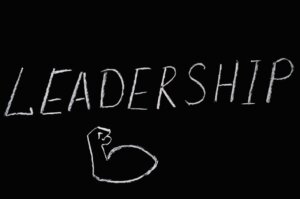Guest blog submitted by Krista Peterson
This dialogue about onboarding and new leader transitions is so multi-faceted, and there are so many interesting directions we can go. Let’s go deeper into the aspect of culture.
External Executive Hiring
Steve commented about the prevalence of organizations hiring externally for key roles. From my experience, both as a retained recruiter and as an executive in an organization, I can attest that one way that a newly hired executive can derail goes back to a poor selection process. When the organization has been unclear about what they were actually looking for and subsequently selected the “wrong” person, the likelihood of derailment is even higher.
If companies are choosing an external candidate over internal candidates 75% of the time, it would serve them well to be really clear about the job outcomes, expected business results, team dynamics, and the leadership talents and skills needed to be most effective before they engage in a search. A robust search process can then screen candidates for leadership traits, experience, cultural fit, and past behaviors that most closely match those needs. Also, communicating what the culture is like to external candidates is critical during the selection process, so the candidate can self-select and make informed choices about pursuing that organization.
Cultural Fit
Sometimes even the best selection process can miss some of the subtle things that can lead to derailment. Cultural fit is one of the more subtle aspects to navigate, for there are many things at play that make it a complex one to figure out. On the surface, you have the corporate culture of the organization, this is usually known and easily described by employees. Then there are the sub-cultural elements of the organization or division, that may be less known. They represent the unwritten rules of engagement, and how the work actually gets done in the system. It is these unwritten rules that can be harder to tease apart. Layer on top of that, the leader’s previous culture, which has influenced, in part, the leader’s style. What may have been culturally acceptable and rewarded in the previous company, may not be tolerated in the new organization, and because it is an unspoken rule, often no one has communicated this to the new leader clearly.
Case Study on Culture
One new leader I was coaching (at the derailment stage) came into the organization at a Director level. His past experience was incredibly strong and industry-specific. He was brought in as an expert to lead the expansion of an existing product line. His former company culture was very competitive, bordering cut-throat, and leaders there were rewarded for their independent thoughts and actions. The new organization was far more collegial and rewarded collaboration and partnership. The leadership skills that were nurtured and encouraged in one environment were derailing him in the new organization. No one had offered enough feedback, and so the subtleties of the culture and his leadership style were clashing. He was getting business results and driving the new product line, but he was disenfranchising his team and cross-company partners every step of the way.
The Role of Feedback
Especially related to cultural fit, feedback plays a critical role. It is nearly impossible to communicate upfront every nuance of the culture, but as the new leader behaves in ways that run counter, feedback is essential to making early course corrections. In next week’s entry will look at different types and approaches to feedback. In the meantime, it would interesting to hear how others work to ensure that new leaders are clear about the culture, especially in relation to a leader’s own strengths and opportunities. We would also welcome thoughts, ideas, and questions on the role of feedback in general.
Guest Writer Information
Krista Peterson, MA, is the Founder, Principal Consultant, and Coach at Stone River Consulting in St. Paul, Minnesota. Her phone number is 612-719-7658; e-mail is kpeterson@stoneriverconsulting.com
Krista brings nearly 20 years of experience in leadership development to the practice, largely from her time at Target Corporation, where she served as the director of talent development, leading the organization’s strategy for developing leaders. She also led the creation of an internal executive coaching function and expanded the onboarding services delivered to new leaders.
——————–
Steve Wolinski provides leadership development, organizational change, and talent management services to numerous public, private, and non-profit organizations.
 Sections of this topic
Sections of this topic
















